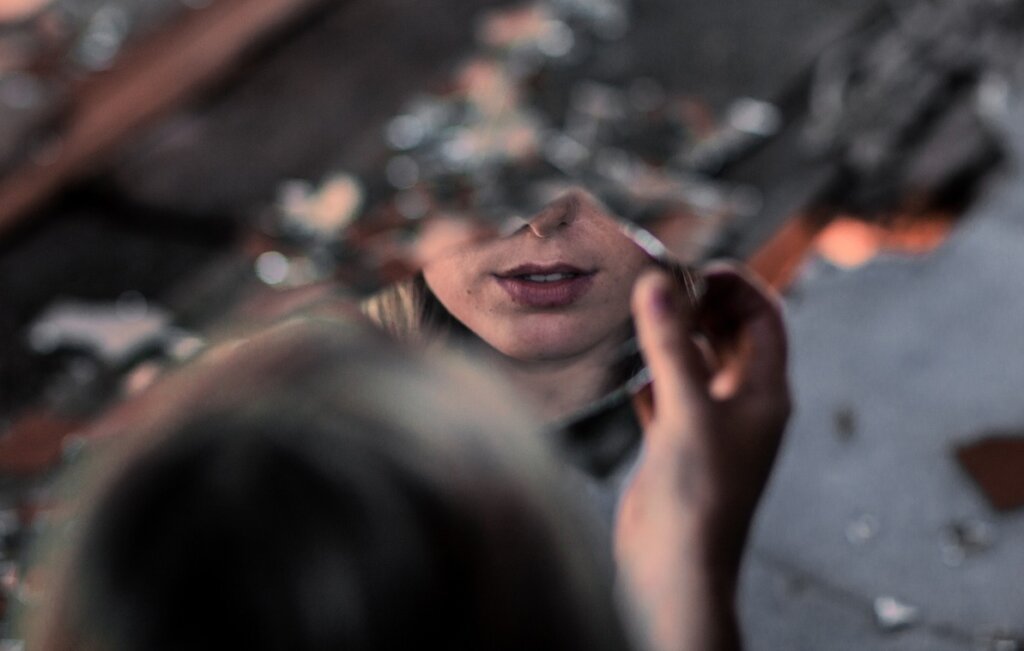Unloved Daughters and Their Adult Relationships


Written and verified by the psychologist Valeria Sabater
Many unloved daughters suffer in silence as adults. Neglect, abandonment, narcissistic parents… There are several dynamics and realities capable of leaving permanent wounds in a child’s psychological fabric. Furthermore, all of these early emotional injuries usually have a later impact on their adult relationships.
As we know, our upbringings are often far from perfect. Indeed, many people can bear witness to the fact that a mother’s love isn’t always unconditional. Also, a father’s respect for their children isn’t always exactly exemplary. However, in this particular case, we’re interested in another phenomenon.
We want to discover what relationships are like for women who’ve suffered familial deprivation in childhood. How do they experience and handle love in adulthood?

Unloved daughters face emotional challenges
There’s a unique kind of baggage that unloved daughters carry around with them and that accompanies them into adulthood. When they look in the rearview mirror of their own lives, they almost always see a past full of disappointments, deep voids, and sharp rejections that left wounds that haven’t yet healed. Indeed, we all create our life stories based on our previous experiences.
When our models came from a childhood of emotional coldness, heartbreak, or even psychological abuse, we might integrate distorted and even wrong schemas into our lives. For example, many unloved daughters may accept abusive behavior from their partners as valid.
They do it because it’s the only thing they’ve ever known. They accept contempt, blackmail, and even emotional manipulation because it’s all they’ve ever experienced. Furthermore, it isn’t easy for them to recognize these realities. They don’t understand that real love doesn’t work that way and that we should all aspire to something better.
Insecure attachment in unloved daughters
Peg Streep is an American author. She’s spent more than 20 years studying the reality of women who weren’t loved by their mothers in childhood. In her book, Daughter Detox, she suggests that these daughters are defined by developing insecure attachments. That’s because, during their childhoods, they never knew what to expect from their parents, more particularly from their mothers.
Insecurity, contradictory attention, indifference, and often criticism and contempt can cause some of the following behavioral patterns to develop in adulthood in the relational sphere.
- Anxious-preoccupied affective behavior. It’s defined by experiencing insecurity, as well as constant anxiety in the emotional relationship. These women feel fear of abandonment and deception. At the very least, they think they’ll suffer a betrayal.
- Avoidant-dismissive. They don’t want to establish solid relationships. In fact, they avoid them because they prefer to maintain their independence and have control over their lives, thus avoiding any suffering.
- Fearful-avoidant. These unloved daughters become adults who want to have a partner and enjoy intimacy. However, they feel insecure because they’re afraid of experiencing the same pain as they did in childhood. For this reason, they don’t hesitate in finishing relationships or suddenly disappearing.
Research
In a study that examined how adult attachment styles are expressed in daily life, anxiously attached individuals reported higher negative affect and lower positive affect, as well as greater fear of losing control in their daily lives. Both anxious and avoidant participants perceived themselves negatively and were less confident in their coping abilities. Furthermore, individuals with an anxious or avoidant style reported feeling less cared for by others than those with a secure attachment.
The research also found that anxiously attached individuals had hyperactivating tendencies, such as increased negative affect, stress, and perceived social rejection. In contrast, individuals with an avoidant attachment had deactivation tendencies, such as decreased positive states and decreased desire to be with others when alone.
Highly avoidant people have negative views of their romantic partners and they see themselves as unworthy of the love and support of others (Bartholomew, 1990). They strive to create and maintain independence, control, and autonomy in their relationships. This is so because they believe that seeking psychological or emotional closeness with romantic partners isn’t possible. These beliefs motivate the avoidant individual to employ distancing coping strategies in which they defensively suppress their negative thoughts and emotions to promote independence.
Mental models and intimacy
Of the three insecure attachment styles previously mentioned, anxious-preoccupied is the most dramatic. Women with this kind of attachment style need an intimate relationship to feel validated. In fact, they respond so quickly to any perceived threat, that being around them can be emotionally draining for others.
The other two types of insecure attachment, avoidant-dismissive and fearful-avoidant, make the road to romance and intimacy bumpy in different ways. Dismissive women don’t really want dyadic intimacy; they need to stay independent and in control. While the fearful types want intimacy, yet they’re really insecure and fear emotional pain.
Lack of love in childhood causes ideas to be integrated that aren’t true
Spending the first decades of life in the wake of emotional deprivation, maternal and paternal narcissism, criticism, or abandonment makes unloved daughters possess distorted ideas about relationships. As a rule, they’re the following:
- Love is a transaction. They have to suffer to receive even the slightest amount of affection. In addition, they often normalize abuse, contempt, and manipulation.
- Emotions and needs must be hidden. If something hurts or disappoints them, they keep it to themselves. Likewise, their own needs and what they want are of no importance to them. They only care about what their partner wants.
- They look for love everywhere. Indeed, the unloved daughter lacks a sense of belonging to their family of origin. That dislocation and lack of roots lead her to look for the slightest affection wherever and with whomever. Hence, there’s a danger of drifting into relationships of dependency.

Questions to ask yourself if you were unloved
If you were an unloved daughter, you may have gravitated for a long time around people who, far from loving you as you wanted and needed, neglected you as no one deserves. You deserve respect and real love. However, first of all, you must repair and even build the fabric of self-love and self-esteem.
For this reason, in these kinds of situations, it’s good to ask yourself the following questions. They should make you reflect.
- Do you really need to have a partner to be happy?
- What do you expect your partner to offer you? Is it connected with the deficiencies you had in your childhood?
- Why are you usually unsuccessful in love? What have you learned from those experiences?
- What does love mean to you? Is your idea of love healthy? Has it benefited you so far?
- What vision do you have of yourself? Is there something you need to address or solve to feel better?
- If you think about your childhood, what emotions come to mind? Sadness, anger, disappointment, fear? How do these unhealed emotions and issues affect your relationships?
To conclude, many people have lived through traumatic childhoods. However, unloved daughters are a recurrent phenomenon. Needless to say, you should request expert help if you think you need it.
All cited sources were thoroughly reviewed by our team to ensure their quality, reliability, currency, and validity. The bibliography of this article was considered reliable and of academic or scientific accuracy.
- Bartholomew, K. (1990). Avoidance of intimacy: An attachment perspective. Journal of Social and Personal relationships, 7(2), 147-178.
- Kerns, K. A., & Brumariu, L. E. (2014). Is insecure parent–child attachment a risk factor for the development of anxiety in childhood or adolescence?. Child development perspectives, 8(1), 12-17.
- Lewis, Thomas, Fari Amini and Richard Lannon. A General Theory of Love. New York: Vintage Books, 2001.
- Eisenberger, Naomi. “The Pain of social disconnection: examining the shared neural underpinnings of physical and social pain” (2012) Nature Reviews Neuroscience (May 2012), 13 (6), 421-434.
- Sheinbaum, T., Kwapil, T. R., Ballespí, S., Mitjavila, M., Chun, C. A., Silvia, P. J., & Barrantes-Vidal, N. (2015). Attachment style predicts affect, cognitive appraisals, and social functioning in daily life. Frontiers in psychology, 6, 296.
- Simpson, J. A., & Rholes, W. S. (2017). Adult attachment, stress, and romantic relationships. Current opinion in psychology, 13, 19-24.
- Streep, P. (2018) Daughter Detox: Recovering from An Unloving Mother and Reclaiming Your Life. Ile D’Espoir Press
- Street, P. (2020, 21 de octubre). Why relationships can be such a challenge for unloved daughters. PsychologyToday. https://www.psychologytoday.com/intl/blog/tech-support/202010/why-relationships-can-be-such-challenge-unloved-daughters
This text is provided for informational purposes only and does not replace consultation with a professional. If in doubt, consult your specialist.








